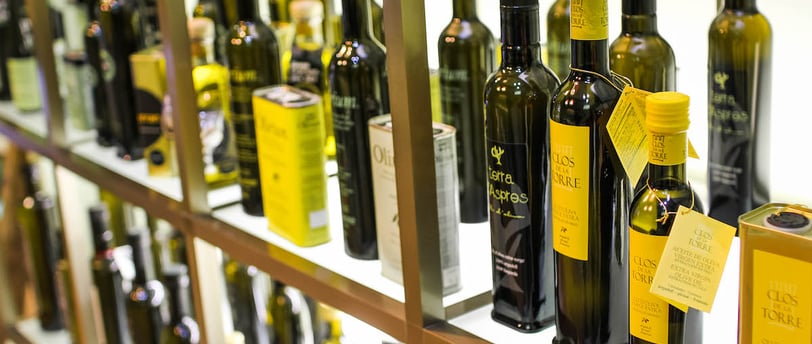Organic vs Regular Extra Virgin Olive Oil
EVOO MANUFACTURING PROCESSLEARN ABOUT EXTRA VIRGIN OLIVE OIL
2 min read


Introduction:
The choice between organic and regular Extra Virgin Olive Oil (EVOO) extends beyond the culinary realm, delving into agricultural practices, environmental impact, and personal health considerations. In this article, we will explore the distinctions between organic and regular EVOO, shedding light on the factors that influence their production, quality, and the implications for both consumers and the planet.
1. The Roots of Distinction: Organic Extra Virgin Olive Oil
Organic Farming Practices:
Organic EVOO is cultivated using organic farming methods, which eschew synthetic pesticides, herbicides, and fertilisers. Instead, it relies on natural processes, and organic inputs to maintain soil health and fertility. These organic inputs will include organic pesticides, herbicides and fertilisers.
Environmental Sustainability:
Organic farming emphasises sustainability, aiming to minimise the ecological footprint of agricultural practices. It often incorporates measures to protect biodiversity, conserve water, and reduce soil erosion.
2. Conventional Excellence: Regular Extra Virgin Olive Oil
Conventional Farming Methods:
Regular EVOO, produced conventionally, may involve the use of synthetic chemicals such as pesticides and fertilisers. These methods are geared towards maximising crop yields and preventing pest infestations.
Yield and Cost Efficiency:
Conventional farming tends to prioritise higher yields and cost efficiency, often using technological advancements to streamline the production process.
3. The Taste Test: Flavour Profiles of Organic and Regular EVOO
Flavour is does not depend on the organic certification. The organic certification states that you use natural methods of increasing production.
4. Purity and Certification: Navigating the Labels
Organic Certification: Stringent Standards:
Organic EVOO carries a certification attesting to compliance with strict organic standards. This certification is granted by recognised bodies, assuring consumers that the oil is produced according to organic principles.
Regular EVOO: Industry Standards:
Conventional EVOO may adhere to industry standards, but the absence of an organic certification means that it is not necessarily produced using organic farming methods.
5. Health Considerations: Are Organic Oils Healthier?
Reduced Pesticide Residues: Organic Advantage:
One of the touted benefits of organic EVOO is the lower likelihood of pesticide residues, which may be a concern for those aiming to minimise exposure to synthetic chemicals.
Nutritional Content: Variances and Similarities:
While some studies suggest potential differences in nutritional content between organic and conventional produce, the overall impact on health from choosing one over the other remains a subject of ongoing research.
Conclusion: A Green Palette of Choices
In the organic vs regular EVOO debate, the choice ultimately rests on personal preferences, environmental values, and health considerations. Whether one leans towards the natural intricacies of organic farming or appreciates the efficiency of conventional methods, both options offer a palette of flavors and choices that enrich the world of Extra Virgin Olive Oil. As consumers become increasingly discerning, the organic vs regular debate prompts us to not only savor the distinct tastes but also consider the broader impact of our choices on the environment and our well-being.
